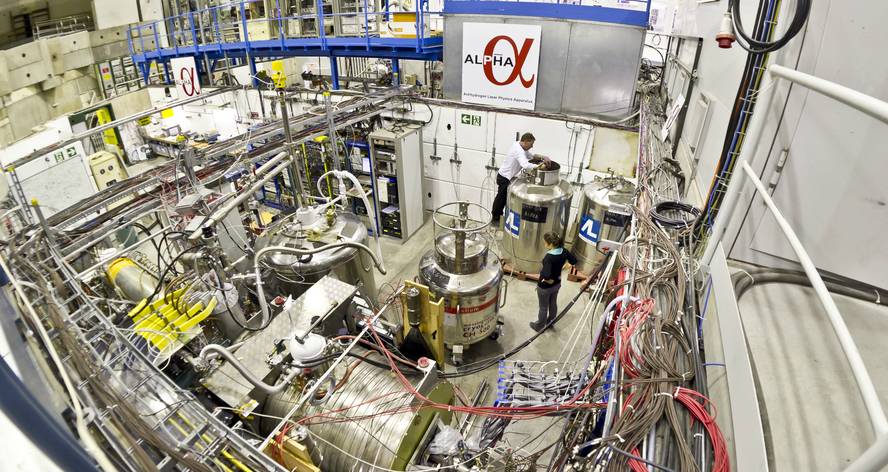Confirm neutral charge of antihydrogen
CERN researchers confirm that the electric charge of antihydrogen is neutral. They have been able to measure 20 times more accurately than ever. The results have been published in the journal Nature.
According to the Standard Model of Physics, antimatter and matter have opposite charge. For example, a hydrogen atom (matter) is formed by a negative electron and a positive proton, so it has a neutral charge. And the theory says that an antihydrogen atom is formed by a positive positron and a negative antiproton, so it should also have a neutral charge. But the Standard Model also says that in the Big Bang matter and antimatery were formed in the same amount and, as we know for now, that is not fulfilled; in the universe there is much more matter. To explain, physicists try to compare the properties of matter and antimatery. For example, if the loads are actually contrary or only in a certain proportion.
Recently, in the CERN Alpha experiment they are able to produce antihydrogen. They bind positrons and antiprotons and trap them in a magnetic trap. They have now analyzed how they behave when placed in an electric field, confirming that they have a neutral charge.
However, the main objective of the experiment is to study by spectrometry the properties of antihydrogen in order to compare them better with it. The first measurements are expected this year.






